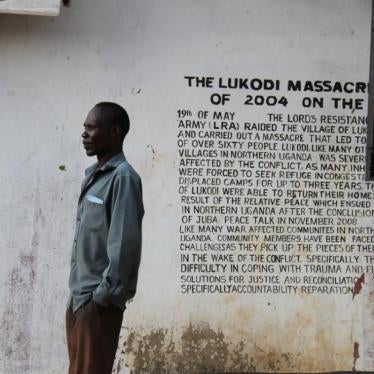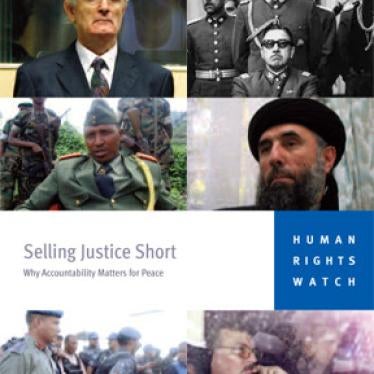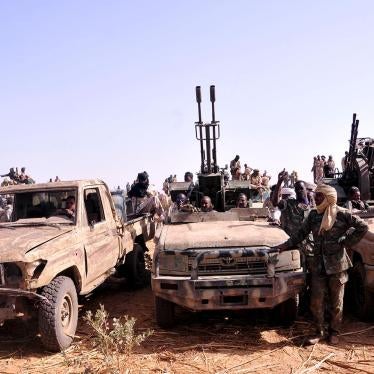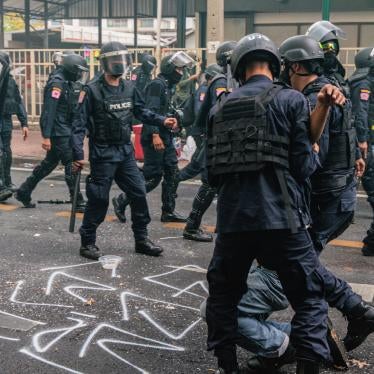The following are some notable provisions of the ICC treaty, as
adopted by the Rome conference.
Crimes that the court can investigate and prosecute (Article 5) - The
court has jurisdiction over genocide, crimes against humanity and war
crimes. Fortunately, the treaty does give the court jurisdiction over
crimes committed in internal armed conflict - a provision strongly
opposed by the Arab League states, China, and India. But the list of
crimes for international war is much longer than that for civil war.
For example, the court can prosecute someone for indiscriminate
attacks against civilians, the starvation of civilians, or the use of
prohibited weapons such as biological weapons -- but only if those act
are committed in a war between states, not a civil war. Since almost
all conflicts today are "non-international," this limits the scope of
the court.
Several of the definitions of crimes go back on existing
international law. For example, it's well established that crimes
against humanity have to be "widespread and systematic." The treaty
also requires that in addition, they must be committed as part of
"state, organization, or group policy."
In an important victory, the court will be able to prosecute as a
war crime the use of children under the age of 15 as soldiers, or to
commit rape, sexual slavery, or enforced pregnancy in the context of
war. Persecution on the basis of gender will be considered a crime
against humanity and a war crime.
The court will also have jurisdiction over the crime of aggression
if and when a definition is decided upon in the future. U.S. strongly
opposed including crimes of aggression in the treaty.
Restrictions on the court's jurisdiction (Articles 12, and 111 bis) -
A proposal that had won overwhelming support at the conference (the
"Korean proposal") allowed prosecutions to go forward if one out of
four states had ratified the treaty: the state where the crimes took
place, the state of the accused person's nationality, the state of the
victim's nationality, and the state with custody of the accused.
In the final version of the treaty, the court cannot act unless the
state of nationality of the accused, or the state where the crimes
took place, have ratified the treaty. In practice, those two are very
likely to be the same state: Pol Pot, Idi Amin, Pinochet, and many
others committed atrocities on their own populations. This provision
will dramatically reduce the number of cases that the court can act
upon.
If the "custodial state" had been included, tyrants could have been
captured while traveling outside their own countries. Under this
treaty, even a country that wants to turn over a suspect visiting its
territory will have no legal basis to do so.
If the state of nationality of the victim had been included, a
country could have submitted a case to the ICC if its citizens were
victims of these serious crimes in another country. An example would be
the Spaniards who were "disappeared" in Argentina in the 1970's and
80's. Under this treaty, Spain would not have been able to file a suit
on their behalf.
"Opt-out" for war crimes (Transitional Provision, Article 111 bis) - A
major loophole, introduced at the eleventh hour by the permanent
members of the Security Council, will allow ratifying states to
declare that they "opt out" of the court's jurisdiction for war crimes
for a period of seven years. States could not renew their "opt out."
It's still unclear whether this provision will remain permanently in
the treaty, allowing any new member to "opt out" when it joins.
This device incorporates impunity for war crimes into the founding
document of a court that's been established to prosecute these crimes.
That's illogical at best - and very damaging to the court's ability to
function. We expect that militaries will put tremendous pressure on
their governments to take this loophole. Human Rights Watch calls on
states not to take advantage of the "opt-out" provision.
Independent prosecutor (Article 15) - This provision allows the ICC
prosecutor to undertake investigations on her own, subject to pre-trial
approval by a panel of judges who will determine whether there is a
reasonable basis for the investigations. The prosecutor can initiate
the investigation based on information from victims, non-governmental
organizations, or any other reliable source. The prosecutor and the
judges will be selected by the states that have ratified the treaty.
This proposal was highly controversial and staunchly opposed by the
United States. Human Rights Watch considers its adoption to be a major
victory, because national governments and the U.N. Security Council
cannot be relied upon to bring matters to the court.
Role of the U.N. Security Council (Article 16) - At one time, all five
permanent members of the Security Council insisted that they should
have a veto over the court's docket. That proposal didn't fly.
Instead, the treaty includes the "Singapore compromise," by which the
Security Council may delay a prosecution for twelve months if it
believes the ICC would interfere with the Council's efforts to further
international peace and security. The Security Council must pass a
resolution requesting the court not to proceed; an individual
permanent member cannot block an investigation by exercising its veto.
However, the Security Council can renew its request indefinitely,
in twelve-month segments. This jeopardizes the court's independence,
but the Singapore Compromise takes the veto away from individual
permanent members.
The Security Council can refer matters to the court, and when it
does so, no state can block the ICC from proceeding - even states that
don't ratify the treaty.
Complementarity (Articles 17, 18, 19) - These important provisions are
at the heart of the relationship between the ICC and national judicial
systems, and won wide agreement. The ICC will only be able to try cases
when national courts have failed to work - where those courts have
acted in a way to shield the individual from criminal responsibility.
This ensures that the ICC will only operate in the most exceptional
circumstances, to fill the gap when national systems fail, not to
substitute itself for national authorities.
Criminal Law Provisions (Articles 65, 66, 67, 68 and Article 32 ) -
In several important provisions, the treaty provides for full
protection of the right of accused persons to a fair trial, and for
the protection of victims and witnesses appearing before the Court.
At the same time, Human Rights Watch is concerned that certain
provisions represent a step back in international law. For example,
the statute allows a limited right to assert the existence of orders
from one's superior as a defense, although it has been clear since
Nuremberg that such orders cannot be a defense for committing serious
war crimes.
Reparations for victims (Article 73) - In a major step forward for
victims of atrocities, the court has broad powers to order convicted
persons to make reparations to victims. Those reparations can take
financial or symbolic form. Individual victims are entitled to
participate directly in the court's proceedings on reparations.
Duties of states to cooperate with the court (Article 90) - Since the
ICC will have no police force, it's entirely dependent on states to
investigate cases and transfer suspects to the court. The prosecutor
has very limited power to conduct investigations - she can't compel
witnesses or carry out exhumations, for example.
The treaty does require states to comply with the court's requests
for cooperation. However, there are two major exceptions. First, as a
result of U.S. and French insistence, the state may withhold
information or prevent an individual from giving evidence if, in the
state's view, it would prejudice national security interests. The U.S.
proposal prevailed over one from the U.K., which would have allowed
the court to order a state to disclose information, if it was acting
in bad faith. Second, a very vague provision could allow states not to
cooperate on the basis of inconsistency with their own "fundamental
national law," such as constitutional provisions.
No Reservations (unnumbered article ) - In an important victory, the
treaty does not allow reservations. This means that, unlike with other
treaties, states cannot create loopholes to their obligations under
the ICC treaty by simply declaring that certain articles don't apply
to them - except for the war crimes "opt-out" mentioned above, which
is incorporated into the body of the treaty itself.






